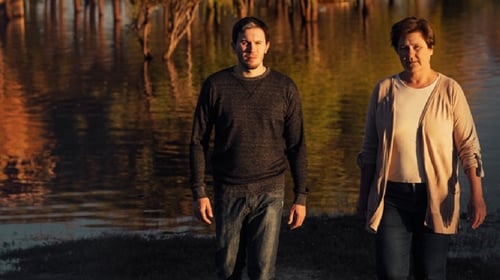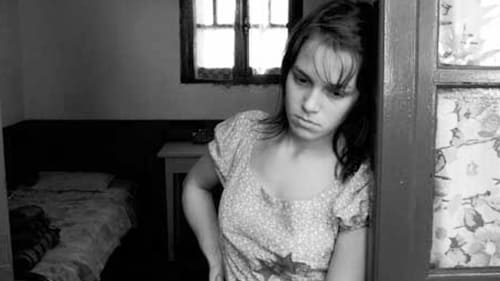
Editor

Editor
A man travels to the Argentine north following the leads of a mythical pre-Columbian entity in charge of the relatives’ sorrow. The roads at night, the inns and the large salina of Zelarayán’s poem reject anthropological shortcuts and build up a mystery that is perhaps as formidable as the very bearer of sorrow.

Editor
At a maximum security prison, a boxer searches for his freedom and receives advice from the leader of the cell block , along with a group of young men who want to be millionaires and another one who has just been imprisoned for murder. The director of the films coexists with them and obtains a portrait from the edge.

Editor
Portrait of Leónidas Barletta, founder of Teatro del Pueblo, the first independent theatre in Latin America. This film on the controversial theatre director and left wing journalist is constructed from the letters and books Leónidas sent to his young sister María Angélica, godmother of director Miguel Colombo, who decides to leave her brother's legacy in the hands of her godson before she dies.

Script
Portrait of Leónidas Barletta, founder of Teatro del Pueblo, the first independent theatre in Latin America. This film on the controversial theatre director and left wing journalist is constructed from the letters and books Leónidas sent to his young sister María Angélica, godmother of director Miguel Colombo, who decides to leave her brother's legacy in the hands of her godson before she dies.

Director
Portrait of Leónidas Barletta, founder of Teatro del Pueblo, the first independent theatre in Latin America. This film on the controversial theatre director and left wing journalist is constructed from the letters and books Leónidas sent to his young sister María Angélica, godmother of director Miguel Colombo, who decides to leave her brother's legacy in the hands of her godson before she dies.

Writer
A recurring nightmare immerses the filmmaker into a visual research in the first person. Beginning with the 1955 bombing of Buenos Aires, the film elaborates a disturbing essay about violence. Combining a variety of different materials the director follows a line of thought that starts with his grandparents at World Wars I and II, and passes through Vietnam and the atomic weapons, reflecting about the kind of world we make for ourselves and for coming generations.

Director
A recurring nightmare immerses the filmmaker into a visual research in the first person. Beginning with the 1955 bombing of Buenos Aires, the film elaborates a disturbing essay about violence. Combining a variety of different materials the director follows a line of thought that starts with his grandparents at World Wars I and II, and passes through Vietnam and the atomic weapons, reflecting about the kind of world we make for ourselves and for coming generations.

Executive Producer
Dr. Vladimir Roslik was born and raised in the town of San Javier, founded by Russian immigrants on the banks of the Uruguay River, and graduated as a doctor in Moscow in the late 1960s during the Cold War. He later decided to return to his small town in Uruguay to practice his profession, for which he obtained the affection and respect of the community. Vladimir Roslik was assassinated in 1984 during the dictatorship during a torture session, and it is considered the last death of the Uruguayan military dictatorship. Today, more than 36 years after his crime, it is still not known who the intellectual authors of the military operation that caused his death were. This documentary traces the life of Mary and Valery, the widow and son of Dr. Vladimir Roslik. They are currently seeking to heal a wound that is theirs, and of their community, as victims of an irrational political and ethnic persecution, under the shadow left by a law that prevented justice for the murders.

An intimate geographic route where the director narrates in first person the story of his grandfather Ludovico, an Italian arrived in Argentina after fighting in World War II. With very few clues begin to map the features of a grandfather he never knew and soon reveals disturbingly contradictory.

Editor
In an intimate and geographical journey, the director tells in the first person the story of his grandfather Ludovico, an Italian who arrived in Argentina after fighting in World War II and who soon reveals himself disturbingly contradictory. His traces still mark his descendants today, and unraveling his history becomes crucial to assimilate the present. In search of his secrets, the director must go into the desert, face the silences of his own history, redefine his identity and rebuild family ties that have been broken for years.

Producer
In an intimate and geographical journey, the director tells in the first person the story of his grandfather Ludovico, an Italian who arrived in Argentina after fighting in World War II and who soon reveals himself disturbingly contradictory. His traces still mark his descendants today, and unraveling his history becomes crucial to assimilate the present. In search of his secrets, the director must go into the desert, face the silences of his own history, redefine his identity and rebuild family ties that have been broken for years.

Writer
In an intimate and geographical journey, the director tells in the first person the story of his grandfather Ludovico, an Italian who arrived in Argentina after fighting in World War II and who soon reveals himself disturbingly contradictory. His traces still mark his descendants today, and unraveling his history becomes crucial to assimilate the present. In search of his secrets, the director must go into the desert, face the silences of his own history, redefine his identity and rebuild family ties that have been broken for years.

Director
In an intimate and geographical journey, the director tells in the first person the story of his grandfather Ludovico, an Italian who arrived in Argentina after fighting in World War II and who soon reveals himself disturbingly contradictory. His traces still mark his descendants today, and unraveling his history becomes crucial to assimilate the present. In search of his secrets, the director must go into the desert, face the silences of his own history, redefine his identity and rebuild family ties that have been broken for years.

Director

Editor












